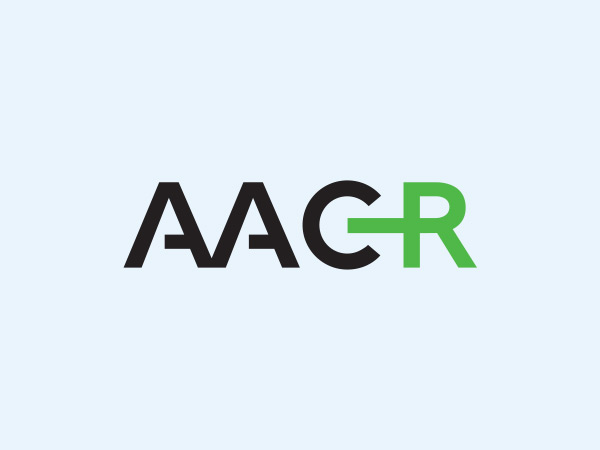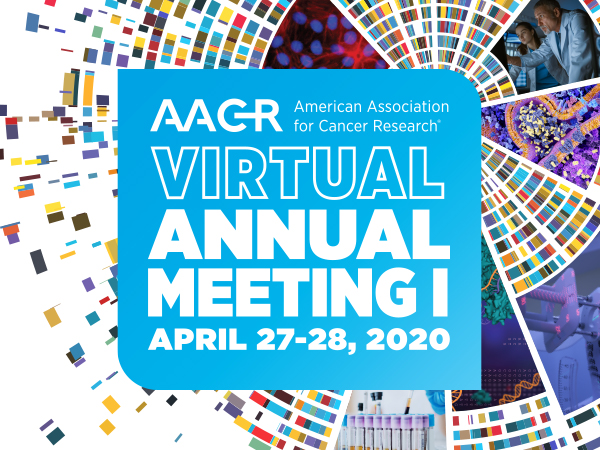AACR Annual Meeting 2021: Novel Approaches to Enhance Immunotherapy
Immunotherapy has revolutionized cancer treatment over the past decade, providing potentially lifesaving therapies to many patients who otherwise would have limited options. Despite its success for many patients, immunotherapy still has challenges to overcome. Fortunately, novel strategies to improve the efficacy of this therapy continue to be developed and tested in patients.
As the world’s premier cancer meeting, the AACR Annual Meeting 2021, held online April 10-15, highlighted some of the latest clinical advances in immunotherapy.
Immunotherapy is a broad class of cancer therapy that encompasses cell-based therapies, immune checkpoint inhibitors, vaccines, and immune system modulators. Certain immunotherapies, including cell-based therapies and some vaccines, are personalized treatments tailored to each patient’s cancer, but the custom manufacturing process requires time that many patients do not have. While immune checkpoint inhibitors do not require extra manufacturing time, many patients’ tumors are ineligible for these treatments. Cell-based therapies have been successful in treating many blood cancers but have had limited success in treating solid tumors. Challenges associated with all forms of immunotherapy include a lack of response in many patients (which may be due to the presence of immunologically “cold” tumors) and the development of resistance (which may be due to T-cell exhaustion or loss of the tumor antigen, among other reasons).
Several approaches are being explored to mitigate some of these obstacles. Researchers are evaluating various combination therapies to enhance responses and are working to develop “off-the-shelf” cell-based therapies so that patients may be treated sooner. In an attempt to understand and prevent treatment resistance, researchers are studying the basic mechanisms underlying resistance, developing immunotherapies that target multiple tumor antigens, and using CRISPR/Cas gene editing to delete an immune checkpoint protein from patients’ immune cells. Changes to manufacturing processes or treatment timing may also improve responses. Clinical trials presented during the AACR Annual Meeting 2021 evaluated various strategies to enhance immunotherapy.
Improving adoptive cell therapy
Two of the featured trials explored ways to enhance adoptive cell therapy, a form of cell-based immunotherapy in which a patient’s T cells are extracted, modified in some cases, multiplied, and reintroduced into the patient. Adoptive cell therapies utilize either chimeric antigen receptor T (CAR T) cells or tumor-infiltrating lymphocytes (TILs).
For CAR T-cell therapy, the patient’s T cells are engineered to express a chimeric antigen receptor (CAR) that binds to antigens on the surface of cancer cells and activates antitumor immune signaling. CAR-T therapy has been highly successful in treating some patients with blood cancers. Three CAR-T therapies are currently approved in the United States for the treatment of certain lymphomas, and the first CAR-T therapy for multiple myeloma was recently approved.

Despite the efficacy of CAR T-cell therapy in some patients, the treatment has several limitations, including disease relapse. Approximately half of patients with B-cell lymphoma, for example, relapse within six months of initiating CAR T-cell therapy due to a lack of CAR T-cell persistence and/or downregulation of the target antigen, CD19, on the tumor. Patients who relapse after CAR T-cell therapy face a dismal prognosis, explained Sanaz Ghafouri, MD, a fellow of hematology and oncology at the University of California Los Angeles Medical Center.
One potential strategy to reduce the risk of relapse is to utilize bispecific CAR T cells, which target two tumor antigens at once. Ghafouri presented results from a phase I clinical trial that evaluated the safety and efficacy of anti-CD19/CD20 bispecific CAR T-cells using naïve memory T cells.
The presented analysis included five patients with B-cell malignancies that were positive for both CD19 and CD20 tumor antigen expression. Naïve memory T cells were extracted from each patient, engineered to express an anti-CD19/CD20 CAR, expanded, and infused back into the patient.
After a median follow-up of 13 months, four of the five patients had ongoing complete remission. Median progression-free and overall survival were not reached at the time of follow-up, and all responding patients continued to have CAR T-cell persistence at the time of data cutoff. All patients experienced grade 1 cytokine-release syndrome. No dose-limiting toxicities or immune effector cell-associated neurotoxicity were observed in any of the patients. One death occurred several months after CAR T-cell therapy and was related to subsequent therapy.
“Bispecific CD19/CD20 CAR T-cells showed an exceptional safety profile,” Ghafouri concluded. “Further analyses with more patients and longer follow-up are needed to confirm these promising preliminary results.”
In another study presented during the AACR Annual Meeting, researchers evaluated a novel approach for TIL therapy in patients with metastatic melanoma. This type of adoptive cell therapy relies on the isolation of TILs from patient tumors, which are then expanded ex vivo and reintroduced into the patient.
Traditionally, only TILs with demonstrated antitumor activity are used. In this study, however, researchers removed this selection step and instead harvested and expanded all TILs contained in the resected tumor. In doing so, they were able to shorten the lengthy manufacturing process and allow for a broad spectrum of reactivity among the final TILs. By eliminating the selection step, additional neoantigen-reactive T cells that evaded selection for various reasons could be captured and infused, according to presenter Robert Hawkins, MD, PhD, chief strategy advisor at Instil Bio Inc. and honorary professor/consultant in medical oncology at the University of Manchester and The Christie Hospital.

In this retrospective analysis, Hawkins and colleagues assessed the safety and efficacy of unselected TIL therapy in 21 patients with high-risk, metastatic melanoma who had received the treatment on a compassionate use basis after progressing on prior therapy. After a median follow-up time of 52.2 months, the objective response rate for all treated patients was 67 percent, with 19 percent (4 out of 21) experiencing a complete response. The median overall survival was 21.3 months.
Adverse events associated with the TIL regimen were consistent with those previously observed in patients receiving TILs for melanoma treatment and included transient low blood counts, IL-2-related fever, tachycardia, rigors, and other symptoms.
“TIL products made from digested tumors show high rates of objective responses in this compassionate use program,” said Hawkins. “These results warrant further investigation in prospective clinical trials.” He noted that a global phase II clinical trial for patients with advanced melanoma is planned for this year.
Exploring therapeutic cancer vaccines
While adoptive cell therapy relies on the engineering of immune cells to target cancer, cancer vaccines are a form of immunotherapy that indirectly attack cancer by training the patient’s immune cells to recognize and destroy cancer cells.
Although the majority of investigational personalized cancer vaccines have been administered in the metastatic setting, accumulating evidence suggests that immunotherapies may be more effective if administered earlier, when patients have a smaller tumor burden, explained Thomas Marron, MD, PhD, assistant director for Early Phase and Immunotherapy Trials at The Tisch Cancer Institute and assistant professor of medicine at the Icahn School of Medicine at Mount Sinai in New York.

Marron and colleagues, therefore, reasoned that administering a personalized cancer vaccine after standard-of-care adjuvant therapy, when patients have minimal residual disease, may improve efficacy. Marron presented results from a phase I clinical trial evaluating this approach as part of a poster session during the AACR Annual Meeting.
A personalized cancer vaccine (PGV-001) was developed for each patient enrolled in the study using the OpenVax computational pipeline. The vaccines were based on each patient’s germline DNA, tumor DNA, and tumor RNA sequences and human leukocyte antigen (HLA) type. Each patient’s personalized cancer vaccine included up to 10 tumor neoantigen peptides specific to their HLA type and utilized a tetanus helper peptide to promote the patient’s immune response.
Following surgery or autologous stem-cell transplant and any standard-of-care adjuvant treatment, 13 patients received their respective personalized PGV-001 vaccine along with the immune-stimulating agent poly-ICLC. All patients received at least seven doses of the vaccine, and 11 patients received 10 doses each.
After a mean follow-up of 880 days, four patients had no evidence of disease, four patients were receiving subsequent lines of therapy, three patients had died, and two patients were lost to follow-up. The median progression-free survival was 618 days. The vaccine was well tolerated, and approximately half the patients developed grade 1 injection-site reactions.
Early results from ongoing immune monitoring demonstrated induction of CD4+ and CD8+ T-cell expansion specific to tumor neoantigen peptides. Two patients had significant responses to subsequent immune checkpoint blockade.
“Our results demonstrate that the OpenVax pipeline is a viable approach to generate a safe, personalized cancer vaccine, which could potentially be used to treat a range of tumor types,” said Marron in an AACR news release.
In another presentation from the meeting, Gregory Friedman, MD, professor of pediatrics at the University of Alabama at Birmingham (UAB), discussed results from a phase I clinical trial evaluating a novel oncolytic virotherapy, a form of immunotherapy that utilizes a virus to selectively infect and destroy cancer cells. Since the resulting cancer cell debris can trigger an antitumor immune response, oncolytic viruses may be described as a type of cancer vaccine.

In this phase I clinical trial, Friedman and colleagues investigated the safety and efficacy of a modified herpes simplex virus type 1 (HSV-1)—a common cause of cold sores—for the treatment of pediatric brain cancer, alone and in combination with radiation therapy. Since HSV-1 naturally infects cells of the peripheral and central nervous system, brain tumors were an ideal target for such a therapy, explained Friedman. Genetic engineering was utilized to generate a modified HSV-1 (called G207) that could infect tumor cells, but not normal cells.
The clinical trial included 12 patients between 7 and 18 years of age with high-grade gliomas that had progressed on prior treatments. G207 was administered to all 12 patients through intratumor catheters. Within 24 hours of G207 infusion, some patients also received a single small radiation dose directed to their tumors, which was designed to enhance virus replication and spread throughout the tumor, Friedman explained.
Responses were observed in 11 patients, and median overall survival was 12.2 months—a 120 percent increase over the typical overall survival seen for progressive pediatric high-grade glioma, according to Friedman. G207 alone or in combination with radiation therapy was well tolerated, with no dose-limiting toxicities, grade 3/4 treatment-related adverse events, nor evidence of virus shedding into the bloodstream, saliva, or conjunctiva.
In addition, analysis of pre- and post-treatment tumor tissue revealed an increase in the number of tumor-infiltrating immune cells, including CD4+ and CD8+ T cells, within three to nine months of G207 infusion. Infiltration of T cells was also observed several centimeters away from the G207 inoculation site.
“These results indicate that this treatment can transform immunologically ‘cold’ pediatric high-grade gliomas with very few immune cells into ‘hot’ tumors with an abundance of immune cells, which is a critical step in the development of an effective immunotherapy for children with brain tumors,” Friedman said in an AACR news release.
As showcased by these four studies, a wide variety of immunotherapy approaches are under investigation for a myriad of cancer types and patient populations. While immunotherapy still has several limitations to overcome, research is revealing novel strategies to improve the efficacy of this revolutionary cancer treatment.



